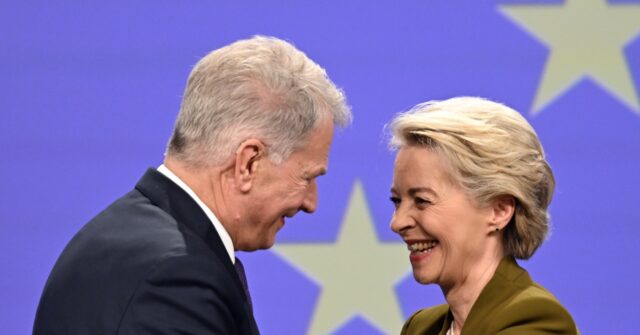In a recent report commissioned by EU chief Ursula von der Leyen, a proposal was put forth advocating for the establishment of a bloc-wide international intelligence service to enhance coordination among the intelligence efforts of the 27 member states. This call for a unified intelligence framework is articulated by former Finnish President Sauli Niinistö, who highlighted pressing global challenges, including the unanticipated Russian invasion of Ukraine and the COVID-19 crisis, as catalysts for the need for a more effective EU-wide intelligence system. Niinistö’s perspective emphasizes that the EU must adopt a “new mindset” to bolster its preparedness against future crises, suggesting that the intelligence coordination should move towards a model akin to the CIA, signaling a significant shift in the EU’s approach to security and intelligence.
Niinistö outlined that the territorial integrity and political independence of each member state are interconnected, asserting that the security of one directly impacts the security of all. He argued that any breach of sovereignty in one member state warrants concern for the entire Union, underscoring a collective responsibility for security. This collective approach to security, according to Niinistö, necessitates more rapid decision-making and action during emergencies. Thus, he posited that a revamped organizational structure within the EU is essential, enabling swift responses to emerging threats. The urgency for clarity within the EU governance structure reflects a growing recognition of the interconnectedness of security risks across Europe.
Furthermore, the report advocated for a comprehensive legal framework that would facilitate lawful access to encrypted data, an area where EU law enforcement agencies have struggled with tech firms. Niinistö’s emphasis on encryption reflects the ongoing tension between national security interests and individual privacy rights. While he argues that access to encrypted data is vital for combating serious threats such as espionage and terrorism, there is significant resistance from technology companies and civil liberties advocates, who warn that compromising encryption systems could jeopardize personal privacy and civil rights for EU citizens. This debate underscores the delicate balance the EU faces in addressing security concerns while upholding democratic values.
Niinistö’s recommendations extend to the bolstering of European defense cooperation, suggesting the potential establishment of a European Union Army, which has been a lingering aspiration among EU leadership, particularly among figures like von der Leyen. He urged member states to increase military spending and address enduring gaps in military readiness, highlighting the importance of a coordinated effort to support Ukraine and ensure long-term peace on Ukrainian terms. These military enhancements are framed not just as a national responsibility but as a collective duty of the EU to sustain its geopolitical stability and address rising threats from outside the bloc.
In conjunction with Niinistö’s report, recent developments within the EU demonstrate a commitment to strengthening defense capabilities. The appointment of former Lithuanian Prime Minister Andrius Kubilius as the EU’s first-ever Defence Commissioner signals a strategic pivot towards organized defense strategy within the bloc. Kubilius is tasked with overseeing the European Defence Industry Programme, which aims to synergize production across defense contractors and enhance the EU’s industrial capacity to respond to security threats. This initiative showcases a concerted move towards deepening military collaboration, which aligns with Niinistö’s vision for a more unified defense posture among member states.
In response to the report, Ursula von der Leyen highlighted the necessity of employing a “whole-of-government and whole-of-society approach” to preparedness and security. She emphasized the importance of not only governmental coordination at various levels but also involving private sector stakeholders and civil society in crisis readiness efforts. By acknowledging the interconnectedness of multiple sectors in building resilience, von der Leyen’s remarks reinforce the notion that security is a shared responsibility that transcends traditional governmental boundaries. The dialogue surrounding the establishment of a cohesive intelligence service and strengthened defense mechanisms reflects the evolving landscape of European security amidst contemporary challenges, advocating for a more integrated and cooperative approach to safeguarding the continent.

